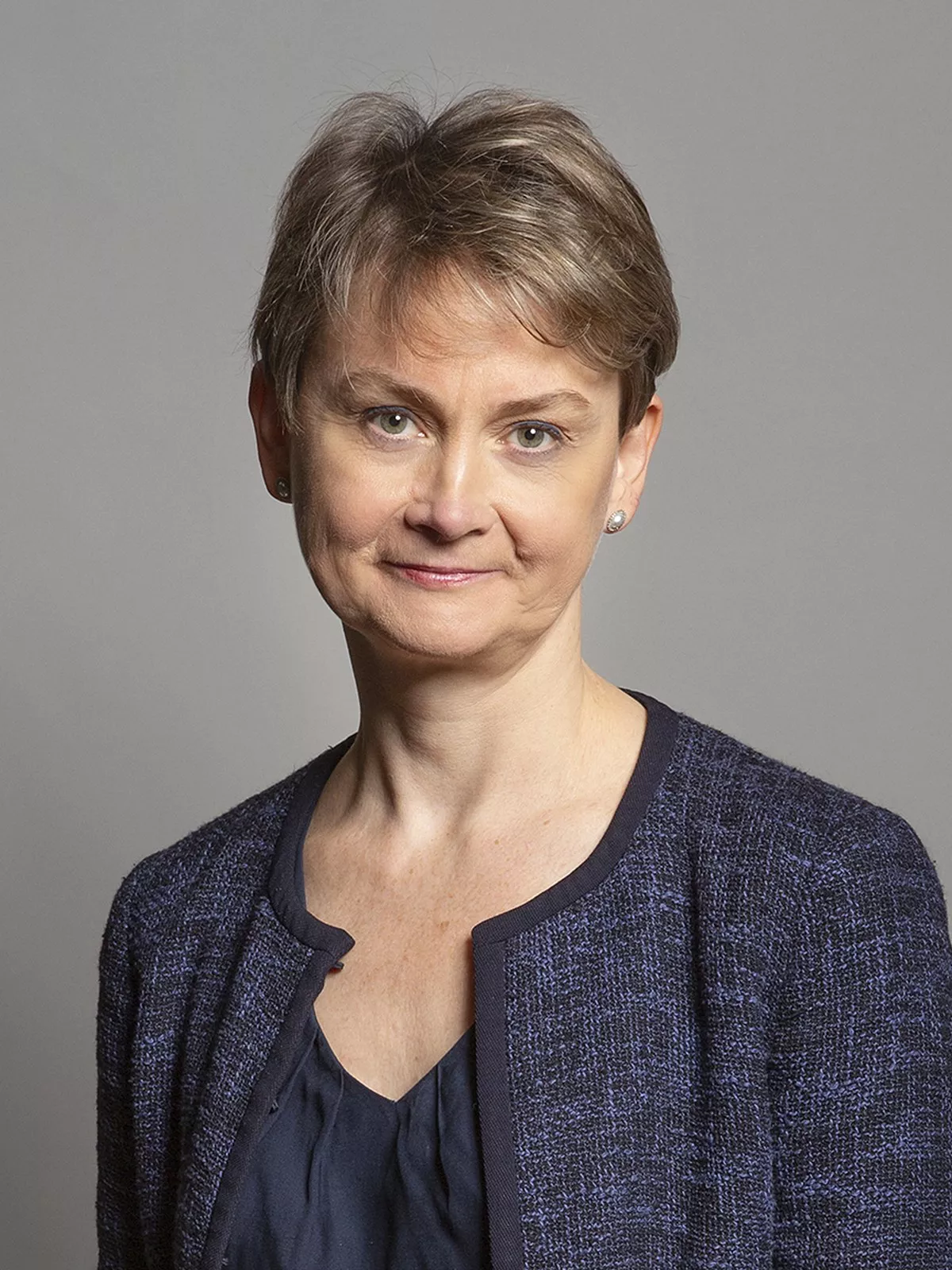 1.
1. Yvette Cooper was born on 20 March 1969 and is a British politician who has served as Home Secretary since July 2024.

 1.
1. Yvette Cooper was born on 20 March 1969 and is a British politician who has served as Home Secretary since July 2024.
Yvette Cooper was promoted to Minister of State for Housing and Planning in 2005, and was retained in the role when Gordon Brown was appointed prime minister in 2007.
In 2011, her husband Ed Balls was promoted to Shadow Chancellor of the Exchequer; Yvette Cooper replaced Balls as shadow home secretary and served until Labour lost the 2015 general election.
On 13 May 2015, Yvette Cooper announced she would run to be Leader of the Labour Party in the leadership election following the resignation of Miliband.
Yvette Cooper subsequently resigned as shadow home secretary in September 2015.
Yvette Cooper was the chair of the Home Affairs Select Committee from 2016 to 2021.
Yvette Cooper became shadow home secretary again in Starmer's shadow cabinet in November 2021.
Yvette Cooper faced her first major domestic event, the riots across the country following the Southport stabbing, three weeks into her tenure.
Yvette Cooper was born on 20 March 1969 in Inverness, Scotland.
Yvette Cooper's father is Tony Cooper, former general secretary of the Prospect trade union, a former non-executive director of the Nuclear Decommissioning Authority and a former chairman of the British Nuclear Industry Forum.
Yvette Cooper was a government adviser on the Energy Advisory Panel.
Yvette Cooper was educated at Eggar's School, a comprehensive school in Holybourne, and Alton College, both in Alton, Hampshire.
Yvette Cooper read philosophy, politics and economics at Balliol College, Oxford, and graduated with a first-class honours degree.
Yvette Cooper won a Kennedy Scholarship in 1991 to study at Harvard University, and completed her postgraduate studies with an MSc in economics at the London School of Economics.
Yvette Cooper began her career as an economic policy researcher for Shadow Chancellor John Smith in 1990 before working in Arkansas for Bill Clinton, nominee of the Democratic Party for President of the United States, in 1992.
At the age of 24, Yvette Cooper developed chronic fatigue syndrome, from which she took a year to recover.
Yvette Cooper was selected as the Labour candidate to contest Pontefract and Castleford at the 1997 general election.
Yvette Cooper made her maiden speech in the Commons on 2 July 1997, speaking about her constituency's struggle with unemployment.
Yvette Cooper served for two years on the Education and Employment Select Committee.
In 2008, Yvette Cooper became the first woman to serve as Chief Secretary to the Treasury where she was involved with taking Northern Rock into public ownership.
In 2009, Yvette Cooper was appointed as Secretary of State for Work and Pensions and took over leading on the Welfare Reform Act 2009 which included measures to extend the use of benefit sanctions to force unemployed people to seek work.
In May 2009, The Daily Telegraph reported that Yvette Cooper had changed the designation of her second home twice in two years.
Yvette Cooper said they had paid capital gains tax on their homes and were not motivated by profit.
Yvette Cooper later topped the 2010 ballot for places in the Shadow cabinet, and there was speculation that the newly elected Labour Leader Ed Miliband would appoint her Shadow Chancellor of the Exchequer.
Yvette Cooper served as Shadow Minister for Women and Equalities from October 2010 to October 2013.
On 20 January 2011, Yvette Cooper took the position of shadow home secretary amidst a shadow cabinet reshuffle.
Yvette Cooper labelled the government's vans displaying posters urging illegal immigrants to go home a "divisive gimmick" in October 2013.
Yvette Cooper spoke at the Labour Party Conference in 2014 about eastern Europeans who were mistreated by employers of migrant labour.
Yvette Cooper was strongly critical of cuts to child tax credit announced by George Osborne in the July 2015 Budget; she authored the following statement in the New Statesman:.
Yvette Cooper was nominated by 59 MPs, 12 MEPs, 109 CLPs, two affiliated trade unions and one socialist society.
Yvette Cooper proposed the introduction of a living wage for social care workers and the construction of 300,000 houses every year.
Yvette Cooper disagreed that Labour spent too much whilst in government.
Yvette Cooper spoke about the issue at Labour's annual conference in 2016.
Yvette Cooper supported Owen Smith against Jeremy Corbyn in the 2016 leadership election.
Yvette Cooper is a member of Labour Friends of Israel.
Yvette Cooper was reappointed as shadow home secretary on 29 November 2021 by Keir Starmer, replacing Nick Thomas-Symonds in a shadow cabinet reshuffle.
Yvette Cooper added that people need to be able to trust the home secretary with highly sensitive information and national security.
Yvette Cooper said that the Conservative Party lacked ethics and adequate standards.
Yvette Cooper additionally visited Southport the following morning to lay flowers and meet officials and community leaders.
Yvette Cooper later condemned the riots across England and Northern Ireland following the stabbing.
Yvette Cooper announced that there would be a review on the threshold at which Prevent intervenes, with senior lawyer David Anderson being assigned by Starmer as the Independent Prevent Commissioner to perform the review.
In November 2024, Yvette Cooper voted in favour of the Terminally Ill Adults Bill, which proposes to legalise assisted suicide.
Yvette Cooper married Ed Balls on 10 January 1998 in Eastbourne.
Yvette Cooper's husband was Economic Secretary to the Treasury in the Tony Blair government and Secretary of State for Children, Schools and Families under Gordon Brown, then in opposition was Shadow Chancellor of the Exchequer and a candidate in the 2010 Labour Party leadership election.
Yvette Cooper has published two books, entitled She Speaks: The Power of Women's Voices and She Speaks: Women's Speeches That Changed the World, from Pankhurst to Greta, released in November 2019 and October 2020, respectively.